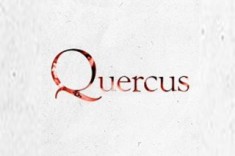June 6, 2014
Before Quercus was bought by Hachette, it too was embroiled in a stand-off with Amazon
by Zeljka Marosevic
At the end of March, Hodder & Stoughton, part of Hachette Book Group, bought the independent publisher Quercus for £12.6 million. As we reported at the time, the one-time successful Quercus, who had enjoyed sensational sales and influx of cash thanks to publishing the Stieg Larsson series, had hit a rough patch and put itself up for sale.
At the time, then-CEO of Quercus Mark Smith spoke to Gideon Spanier at the London Evening Standard, commenting that, “The publishing industry seems to be polarising around very big and very small companies. It’s difficult for companies of our size.” He also added that book sales had been weak for two Christmases in a row, and ebook sales had also been surprisingly disappointing.
He admitted that Quercus was “finding it difficult to get our books in front of consumers” and called on the publishing industry to examine the “concentration of power within the retailing industry and how a small player like us finds it difficult to negotiate”.
Smith was referring to Amazon, although he wouldn’t say so at the time. But on Wednesday new information emerged about the difficulties Quercus had experienced in negotiating terms with Amazon. Reporting again for the Evening Standard, Spanier wrote:
the Evening Standard can reveal Quercus was also embroiled in a secret stand-off with US online giant Amazon for nearly six months over pricing and other issues last year.
Former chairman David Potter has finally spoken out about the situation, stating that Amazon made some Quercus books unavailable during this time, demanding “constant discount, discount, discount” and that this resulted in a loss of revenue for the publisher and partly caused its eventual sale:
The dispute was resolved by Christmas but, by then, Quercus was heading for a “significant” loss. That led to difficulties with its lenders, Barclays, in December and an abrupt sale within weeks.
The result is irony on the grandest scale. Amazon gave Quercus impossible terms, affected its sales at the biggest time of year and contributed to its need to be bailed out through the sale of the company. It was bought by Hachette. But now Hachette US is suffering the same treatment from Amazon because it too won’t agree on Amazon’s terms.
The difference now is that Amazon is dealing with a much bigger player, and the situation isn’t a secret but is being reported on an international scale. Quercus tried to resist Amazon’s terms but eventually had to give in: “Amazon is by far the biggest customer for ebooks and you don’t cut off your best customer”. But Hachettte continues to stand firm, backed by vocal authors, publishers and media organizations alike.
Potter admits that Quercus was carrying a lot of debt and was already in trouble when problems with Amazon arose. He argues its bank, Barclays, was also to blame for not giving them more time to overcome issues: “It was a classic case of the bank pushing a problem into a crisis.”
But the incident shows how vulnerable small publishers are when faced with negotiating terms with Amazon, and how many of them cannot afford a stand-off. For Quercus, it sounded its death knell. Potter again:
It’s completely bizarre Amazon can behave like a cheetah which is grinding gazelles into the ground. That shows to me regulators have not caught up with how the internet is changing the books industry.
Zeljka Marosevic is the managing director of Melville House UK.
